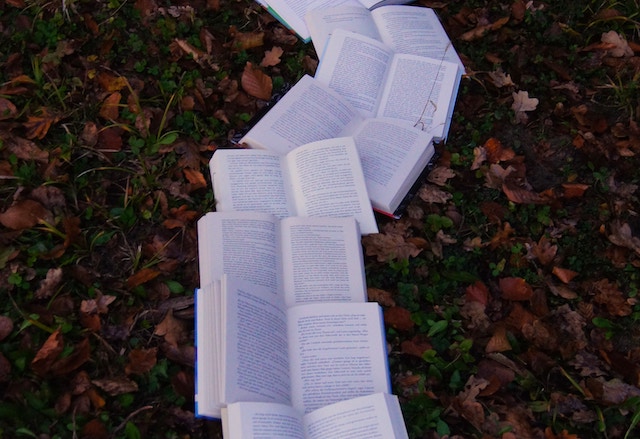
I love a good allusion. Whether it's Ron Burgundy shouting "Hey, Aqualung!" after his jazz flute solo or George R.R. Martin's Three Stooges joke in A Game of Thrones, allusions are awesome. In this article, we're going to cover what they are, how they work, and why to use them.
First Off, What Is an Allusion?
An allusion is a literary device in which an author makes a direct reference to another work or to a real-life event. For example, if I were to name the main character of my next book Jeffrey Lebowski, that would be an allusion to the film The Big Lebowski.
But allusions aren't limited to character names—they can be used anywhere. Try a book’s title, such as in Ray Bradbury’s Something Wicked This Way Comes. That’s a line from William Shakespeare’s Macbeth. One might hint at one’s own work, like how in every Star Wars movie, a character always says, “I’ve got a bad feeling about this”. Or, one might allude to something from real life, such as mentions of the 1919 Chicago Black Sox in The Great Gatsby.
How to Use Allusion
The best allusions are woven into the fabric of a story itself. Here I'll provide a few places you might slip allusions in, along with some tips on best practice.
Names
We've already touched on this one a bit, but character names are great places for allusions. However, they work best when they're subtle. Consider Remus Lupin in J.K. Rowling's Harry Potter and the Prisoner of Azkaban.
Remus Lupin is a professor at Hogwarts—but there's another Remus from mythology. Along with his brother Romulus, that Remus founded Rome. And guess what the brothers were raised by. Wolves! And unless you were raised by wolves, too, you probably know that Lupin ends up being a werewolf. That's a cool little Easter egg for the observant reader.
The lesson here is that allusion works best when it's subtle. If I name the protagonist of my next book Frodo McClane, I'm probably being a bit too obvious.
Phrases
We already covered a Star Wars example, but there are plenty more. For example, consider the scene in Neil Gaiman's American Gods when Shadow meets a talking raven and urges it to say "nevermore." That's an allusion to the repeated phrase from Edgar Allan Poe's "The Raven." (The raven in American Gods responds with an expletive.)
Alluding to phrases works best when it fits the scene and doesn't draw too much attention to itself. Most readers probably got Shadow's joke, so Gaiman doesn't linger on the moment too long. And even if the allusion is lost on some readers, the scene still works.
Extended Allusions
Some works are large-scale allusions to other works. Take Salman Rushdie's Quichotte, for example. It's a story about a protagonist whose mind has been rotted by trashy fiction. He and his companion set off on a quest to win the affection of a woman.
Sound familiar? That's because Quichotte is an extended allusion and modern-day retelling of Miguel de Cervantes's Don Quixote.
If you go for an extended allusion like this, make sure your work stands on its own. You might enjoy Quichotte a bit more if you read Don Quixote first, but you need not do so to enjoy the book.
Why to Use Allusion
There are many reasons to use allusion in your work. Perhaps the most obvious is to connect your writing with someone else's. If you're penning a novel that's heavily inspired by another work, allude to it. Maybe you're writing a humorous fantasy, so you name your protagonist Pratchett. Or perhaps you're working on a mystery novel, so a supporting character reads an Agatha Christie novel in one scene. Allusion allows you to share your sources of inspiration with your readers.
You might also use allusion to add deeper meaning to your work. A crime novel featuring a gruesome murder might be good. But intentionally writing that same book with allusions to a real-life murder will make it even more compelling.
Allusion also helps make your books more fun to re-read. Yes, authors care most about the first read. But there's something to be said for books that offer more to readers the more they read them. Books like that age better and tend to be more interesting to discuss. Allusion can help with it.
Summing It Up
What are some of your favorite allusions in fiction? When have you used allusion in your own work? Let us know!

